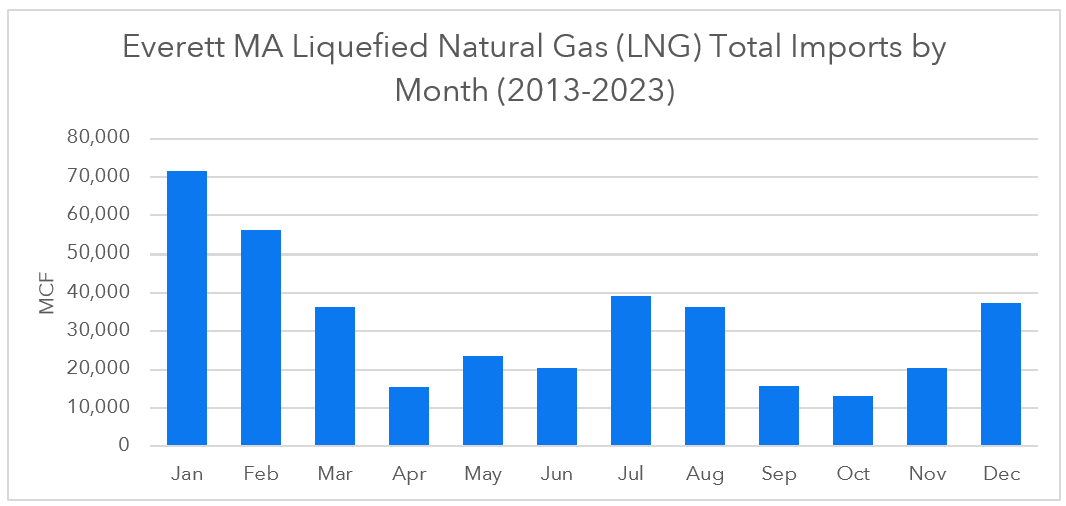Explore Other Resources
Subscribe Today!
Revitalizing the Everett Marine Terminal: A Beacon of Hope in New England's Energy Transition
The Everett Marine Terminal in Massachusetts has successfully secured a new six-year lease, safeguarding the uninterrupted flow of natural gas to the New England region. Subject to approval from the Massachusetts Department of Public Utilities (DPU), National Grid's agreement guarantees the provision of gas to its vast customer base of 950,000. This pivotal move not only strengthens reliability but also aligns with the regions environmental objectives as it progresses towards a sustainable future.
- National Grid secures a six-year contract with Everett Marine Terminal to prevent Liquefied Natural Gas (LNG) supply disruptions for 950,000 customers.
- The contract addresses potential natural gas shortages, underscoring New England's pipeline constraints and slow fossil fuel transition.
- Agreement showcases increased winter energy costs but complies with environmental goals, balancing reliability with sustainability.

In the ongoing narrative that highlights the complexities of transitioning away from fossil fuels, the Everett Marine Terminal in the Boston area finds itself at a crossroad. For years, this terminal has played a key role in importing LNG into the region, particularly for the Mystic power plant. However, with the impending shutdown of the plant, the terminal's future hangs in the balance, raising concerns about potential natural gas shortages for end users in New England who heavily rely on this energy source.
To proactively avert a crisis, National Grid has recently announced a six-year contract with the Everett terminal to ensure the continued supply of LNG to its subsidiary, Boston Gas, which serves about 950,000 customers. This agreement, which is currently awaiting approval from the Massachusetts Department of Public Utilities (DPU), represents a strategic effort to prevent the terminal's closure and maintain a reliable gas supply throughout New England. The urgency of the situation has prompted National Grid to request an expedited review process, emphasizing the dire consequences of inaction on the region's ability to meet its energy needs in the upcoming winters.
The predicament faced by the Everett Marine Terminal and its customers serves as a larger challenge, highlighting the slow and intricate journey towards a sustainable energy future. Despite the growth in shale gas production and the potential for increased pipeline capacity, opposition to fossil fuel infrastructure has limited the available options in the region. The terminal's unique ability to vaporize LNG directly into the local distribution system makes it an invaluable asset in meeting peak demand days, especially when pipeline limitations prevent additional supplies from reaching the New England market.
For energy buyers in New England, this situation presents both challenges and opportunities. The proposed contract with the Everett terminal, while potentially leading to a slight increase in consumer bills in the short term, is viewed as a necessary step to ensure reliability and mitigate the risks of gas shortages. National Grid's commitment to aligning the agreement with the state's Global Warming Solutions Act, by not increasing greenhouse gas emissions, provides insight into how energy providers are balancing immediate supply needs with long-term environmental goals.
As we observe the evolving energy landscape in New England, the story of the Everett Marine Terminal serves as a reminder of the delicate balance between ensuring energy reliability and progressing towards a cleaner, more sustainable future. It is important for energy buyers and consumers to stay informed and engaged with these developments as we collectively navigate the challenges and opportunities that lie ahead.
For additional information please contact us to schedule a quick call.
